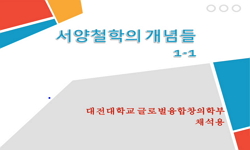본 연구에서는 탄력성 개념에 대한 이론적인 개념화 정립을 돕고자 이론적인 관점을 크게 3가지로 구분하였다. 이를 위해 각 관점의 탄력성 요인별 구분을 포함하여 연구 및 접근방 법 그리...
http://chineseinput.net/에서 pinyin(병음)방식으로 중국어를 변환할 수 있습니다.
변환된 중국어를 복사하여 사용하시면 됩니다.
- 中文 을 입력하시려면 zhongwen을 입력하시고 space를누르시면됩니다.
- 北京 을 입력하시려면 beijing을 입력하시고 space를 누르시면 됩니다.
https://www.riss.kr/link?id=A100545326
-
저자
이연실 (신경대학교)

- 발행기관
- 학술지명
- 권호사항
-
발행연도
2015
-
작성언어
Korean
-
주제어
탄력성 ; 이론적 관점 ; 개념 ; 다차원 ; Resilience ; Viewpoint ; Concept ; Multidimensional
-
등재정보
KCI등재
-
자료형태
학술저널
-
수록면
289-310(22쪽)
-
KCI 피인용횟수
11
- DOI식별코드
- 제공처
-
0
상세조회 -
0
다운로드
부가정보
국문 초록 (Abstract)
본 연구에서는 탄력성 개념에 대한 이론적인 개념화 정립을 돕고자 이론적인 관점을 크게 3가지로 구분하였다. 이를 위해 각 관점의 탄력성 요인별 구분을 포함하여 연구 및 접근방 법 그리고 탄력성을 정의하는 전제조건을 비롯한 탄력성의 특성과 변화의 개념 등 이론적 관점 각각을 면밀하게 분석하였다. 또한, 이런 준거를 바탕으로 하여 그들과의 차이를 비교 하는 과정을 통해 각 관점의 차이점과 공통점에 대해 비교하여 논하였다. 첫째, 탄력성의 정신분석학적 관점은 탄력성을 개인의 내적인 특성이나 성격의 한 유형으로 보았다. 둘째, 탄력성의 발달정신병리학적 관점은 탄력성을 시간의 흐름에 따라 발달해 가는 역동적인 변 화의 과정으로 보았다. 셋째, 탄력성의 발달맥락주의 관점은 개인내적인 특성과 역동적인 과정과의 상호작용으로 보았다. 넷째, 탄력성의 각 3가지 관점은 각각의 차이점과 공통점을 가지고 있다. 본 연구를 통해 탄력성의 개념과 이론적인 관점의 비교과정을 보다 면밀히 알 수 있으며, 탄력성이 보다 다양하게 활용될 수 있는 이론적인 기초와 근거를 마련하는데 활 용될 수 있을 것이다.
다국어 초록 (Multilingual Abstract)
Theoretical viewpoint is divided into three parts in order to define theoretical conceptualization about resilience concept. Firstly, each viewpoint of resilience was classified according to the factors and approaches. Secondly, this study analysed a ...
Theoretical viewpoint is divided into three parts in order to define theoretical conceptualization about resilience concept. Firstly, each viewpoint of resilience was classified according to the factors and approaches. Secondly, this study analysed a definition of resilience, feature of resilience and concept of change based on each theoretical viewpoint . Thirdly, each theocratical viewpoint was compared with each other. Several differences and commons were found as a result. The results are as follows, Firstly, the viewpoint of psychoanalytical theory is that the resilience is individual internal character or personality. Secondly, the viewpoint of developmental psychopathological theory is that the resilience is a process of dynamic change according to the passage of time. Thirdly, according to the viewpoint of developmental contextual theory, the resilience is based on an interaction between individual internal character and process of dynamic change. Finally, the viewpoint of three theoretical theories show several differences and commons. We learned the concept of resilience and the theoretical viewpoints through this study. This study can be useful to arrange the theoretical foundation and basis for making full use of resilience concept.
목차 (Table of Contents)
- 요약
- Ⅰ. 머리말
- 1. 연구의 필요성 및 목적
- Ⅱ. 이론적 고찰
- 1. 탄력성의 정신분석학적 관점
- 요약
- Ⅰ. 머리말
- 1. 연구의 필요성 및 목적
- Ⅱ. 이론적 고찰
- 1. 탄력성의 정신분석학적 관점
- 2. 탄력성의 발달정신병리학적 관점
- 3. 탄력성의 발달적 맥락주의 관점(포괄적 관점)
- 4. 탄력성의 세 가지 관점의 비교 (3가지 관점의 공통점 및 차이점)
- Ⅲ. 맺음말
- 참고문헌
- Abstract
참고문헌 (Reference)
1 이해리, "한국 청소년 탄력성 척도의 개발" 한국청소년정책연구원 16 (16): 161-206, 2005
2 이용준, "탄력적인 아동의 보호요인 연구-아동의 성과 지능, 어머니 양육행동 및 사회경제적 지위를 중심으로" 한국아동학회 26 (26): 329-345, 2005
3 홍은숙, "탄력성(resilience)의 개념적 이해와 교육적 방안" 한국특수교육학회 41 (41): 45-67, 2006
4 이연실, "탄력성 측정도구에 대한 개관" 한국자치행정학회 28 (28): 277-304, 2014
5 유은애, "초등학교 아동의 자아탄력성과 정서적 적응의 관계." 1 : 82-103, 2008
6 신선희, "적응유연한 다문화가정 유아의 보호요인 탐색" 한국열린유아교육학회 15 (15): 319-344, 2010
7 박병기, "자아탄력성 증진 프로그램의 개발 및 효과검증" 한국교육심리학회 24 (24): 61-82, 2010
8 이해리, "의지적, 영적 유연성이 고 역경 청소년의 적응에 미치는 영향" 한국상담학회 8 (8): 317-332, 2007
9 이연실, "유아의 탄력성 척도개발 및 타당화 연구" 숙명여자대학교 대학원 2012
10 이수기, "유아 자아탄력성 증진 프로그램 개발 및 효과 : 성, 연령, 다문화가정 변인을 중심으로" 전남대학교 대학원 2011
1 이해리, "한국 청소년 탄력성 척도의 개발" 한국청소년정책연구원 16 (16): 161-206, 2005
2 이용준, "탄력적인 아동의 보호요인 연구-아동의 성과 지능, 어머니 양육행동 및 사회경제적 지위를 중심으로" 한국아동학회 26 (26): 329-345, 2005
3 홍은숙, "탄력성(resilience)의 개념적 이해와 교육적 방안" 한국특수교육학회 41 (41): 45-67, 2006
4 이연실, "탄력성 측정도구에 대한 개관" 한국자치행정학회 28 (28): 277-304, 2014
5 유은애, "초등학교 아동의 자아탄력성과 정서적 적응의 관계." 1 : 82-103, 2008
6 신선희, "적응유연한 다문화가정 유아의 보호요인 탐색" 한국열린유아교육학회 15 (15): 319-344, 2010
7 박병기, "자아탄력성 증진 프로그램의 개발 및 효과검증" 한국교육심리학회 24 (24): 61-82, 2010
8 이해리, "의지적, 영적 유연성이 고 역경 청소년의 적응에 미치는 영향" 한국상담학회 8 (8): 317-332, 2007
9 이연실, "유아의 탄력성 척도개발 및 타당화 연구" 숙명여자대학교 대학원 2012
10 이수기, "유아 자아탄력성 증진 프로그램 개발 및 효과 : 성, 연령, 다문화가정 변인을 중심으로" 전남대학교 대학원 2011
11 김동희, "아동이 지각하는 가정의 과정환경이 자기효능감과 학교적응에 미치는 영향" 경희대학교 대학원 2003
12 윤현희, "부모보고형 자아탄력성 척도의 개발" 10 (10): 33-53, 2001
13 전지경, "미혼 커플관계 탄력성 척도 개발 및 타당화 검증" 한남대학교 대학원 2011
14 박순희, "다문화가족 자녀의 적응유연성 연구" 동신대학교 대학원 2009
15 신현숙, "가정환경 역경과 청소년의 적응유연성 : 보호요소의 매개효과 검증" 한국청소년상담복지개발원 11 (11): 71-84, 2003
16 Garmezy, N., "child and adolescent psychiatry: Modern approaches" Blackwell Scientific 152-176, 1985
17 Werner, E. E, "Vulnerable but invincible: A Longitudinal study of resilient children and youth" McGraw Hill 1992
18 Werner, E. E., "Vulnerable but invincible : A Longitudinal study of resilient children and youth" Adams, Bannister, Cox 1982
19 Luthar, S. S., "Vulnerability and resiliency : A study of high-risk adolescents" 62 : 600-616, 1991
20 Cicchetti, D., "The role of self-organization in the promotion of resilience in maltreated children" 9 : 799-817, 1997
21 Cowen, E. L., "The rochester child Resilience Project : Overview and summary of first tear findings" 2 : 193-212, 1990
22 Hart, D., "The relation of childhood personality types to adolescent behavior and development : A longitudinal study of Icelandic children" 33 : 195-205, 1997
23 Richardson, G. E., "The metatheory of resilience and resiliency" 58 : 307-321, 2002
24 Masten, A. S., "The development of competence in favorable and unfavorable environments: Lessons from successful children" 53 : 205-220, 1998
25 Luthar, S. S., "The construct of resilience : Acritical evaluation and guidelines for future work" 71 (71): 543-562, 2000
26 Revich, K, "The Resilience Factor" Broad Books 2002
27 Naglieri, J. A., "The Devereux Scale of Mental Disorders" Psychological Corporation 1994
28 Block, J. H., "The California child Q-set" Consulting Psychologists Press 1980
29 Garmezy, N., "Studying lives through time: Personality and development" American Psychological Association 377-398, 1993
30 Lazarus, R., "Stress, Appraisal, and Coping" Springer Publishing Company 1984
31 Fraser, M. W., "Risk, protection, and resilience : Toward a conceptual framework for social work practice" 23 : 129-208, 1999
32 Cicchetti, D., "Risk, Disorder, and Adaptation Vol. 3" Wiley 2006
33 Robins, R. W., "Resilient, Overcontrolled, and undercontrolled boys: Three replicable personality types" 70 (70): 157-171, 1996
34 Tugade, M. M., "Resilient individuals use positive emotions to bounce back from negative emotional experiences" 86 : 320-333, 2004
35 Dyer, J. G., "Resilience: Analysis of the Concept" 5 : 276-282, 1996
36 Winfield, L., "Resilience, schooling, and development in African-American youth" 24 : 5-14, 1991
37 Luthar, S. S., "Resilience is not a unidimensional construct : Insights from a prospective study on inner-city adolescents" 5 : 703-717, 1993
38 Rutter, M., "Resilience in the face of adversity : protective factor sand resistance to psychiatric disorder" 147 : 598-611, 1985
39 Roberts, J. M., "Resilience in children, families, communities Linking context to practice and policy" Kluwer Academic/Plenum 13-25, 2004
40 Egeland, B., "Resilience as process" 5 : 517-528, 1993
41 Luthar, S. S., "Resilience and vulnerability: Adaptation in the context of childhood adversities" Cambridge University Press 2003
42 Leipold, B., "Resilience : A conceptual bridge between coping and development" 14 (14): 40-50, 2009
43 Patterson, C. M., "Reflectivity and learning from aversive events: toward a psychological mechanism for Syndromes of Disinhibition" 100 : 716-736, 1993
44 Goldstein, "Raising Resilient Children" McGraw-Hill 2009
45 Conrad M, Hammen C., "Protective and resource factors in high- and low-risk children: A comparison of children with unipolar, bipolar, medically ill, and normal mothers" 5 : 593-607, 1993
46 Prilleltensky I, "Promoring Family Wellness and Preventing Child Maltreatment: Fundamentals for Thinking and Action" University of Toronto Press 2001
47 Masten, A. S., "Ordinary magic : Resilience processes in development" 56 (56): 227-238, 2001
48 Brooks, R., "Nurturing resilience in our children" The McGraw Hill Company 2003
49 Luthar SS, "Maternal drug abuse versus maternal depression: Vulnerability and resilience among school-age and adolescent offspring" 19 : 205-225, 2007
50 Oetter, R., "Klinische Entwicklungspsychologie" Beltz 1-10, 1999
51 Werner, E. E., "Kauai's children come of age" University of Hawaii Press 1977
52 Wilkes, G, "Introduction: A Second generation of resilience research" 58 (58): 229-232, 2002
53 Johnson, J. L., "Introduction to the special issue on resilience" 39 (39): 657-670, 2004
54 Jaffee, S. R., "Individual, family, and neighborhood factors distinguish resilient from non-resilient maltreatment children: A cumulative stressor model" 31 : 231-253, 2007
55 Block, J., "IQ and ego-resiliency : Conceptual and empirical connections and separateness" 70 : 349-361, 1996
56 Deater-Deckard, K., "Handbook of resilience in children" Kluwer Academic/Plenum 49-63, 2004
57 Masten, A., "Encyclopedia on Early Childhood Development" Centre of Excellence for Early Childhood Development 2006
58 Masten, A. S., "Educational resilience in inner-city America: Challenges and prospects" 3-25, 1994
59 Gordon, E., "Educational resilience in inner-city America: Challenges and prospects" Erlbaum 27-44, 1994
60 Klohnen, E. C., "Conceptual analysis and measurement of the construct of ego-resiliency" 70 (70): 1067-1079, 1996
61 Masten, A. S., "Competence in the context of adversity: Pathways to resilience and maladaptation from childhood to late adolescence" 11 (11): 143-169, 1999
62 Seifer, R., "Child and family factors that ameliorate risk between 4 and 13 years ago" 31 : 893-903, 1992
63 Buckner, J. C., "Characteristics of resilient youths living in poverty : The role of self-regulatory processes" 15 : 139-162, 2003
64 Bronfenbrenner, U., "Beyond the deficit model in child and family policy" 81 (81): 95-104, 1979
65 Block, J., "Assimilation. accommodation. and the dynamics of personality development" 53 : 281-295, 1983
66 노방환, "ADHD아동의 정서발달지원을 위한 사회복지제도에 관한 연구 - 지역사회서비스투자사업을 중심으로 -" 한국자치행정학회 25 (25): 255-278, 2011
67 Friborg, O., "A new rating scale for adult resilience: What are the central protective resources behind healthy adjustment?" 12 : 65-76, 2003
동일학술지(권/호) 다른 논문
-
여성의 경제활동 지속요인에 관한 연구 - OECD 국가를 중심으로 -
- 한국자치행정학회
- 김학실
- 2015
- KCI등재
-
지방재정 효율성 확보 제도의 발전방안 - 계약심사제도 운영을 중심으로-
- 한국자치행정학회
- 류영아
- 2015
- KCI등재
-
- 한국자치행정학회
- 이병렬
- 2015
- KCI등재
-
코칭리더십이 노인요양시설 종사자의 이직의도에 미치는 영향 - 조직몰입의 매개효과를 중심으로 -
- 한국자치행정학회
- 이은정
- 2015
- KCI등재
분석정보
인용정보 인용지수 설명보기
학술지 이력
| 연월일 | 이력구분 | 이력상세 | 등재구분 |
|---|---|---|---|
| 2026 | 평가예정 | 재인증평가 신청대상 (재인증) | |
| 2020-01-01 | 평가 | 등재학술지 유지 (재인증) |  |
| 2017-01-01 | 평가 | 등재학술지 유지 (계속평가) |  |
| 2016-01-01 | 평가 | 등재학술지 유지 (계속평가) |  |
| 2015-04-28 | 학회명변경 | 영문명 : 미등록 -> The korean Association for Local Government & Administration Studies |  |
| 2012-01-01 | 평가 | 등재학술지 선정 (등재후보2차) |  |
| 2011-01-01 | 평가 | 등재후보 1차 PASS (등재후보1차) |  |
| 2010-01-01 | 평가 | 등재후보학술지 유지 (등재후보1차) |  |
| 2009-01-01 | 평가 | 등재후보학술지 유지 (등재후보1차) |  |
| 2007-01-01 | 평가 | 등재후보학술지 선정 (신규평가) |  |
학술지 인용정보
| 기준연도 | WOS-KCI 통합IF(2년) | KCIF(2년) | KCIF(3년) |
|---|---|---|---|
| 2016 | 1.05 | 1.05 | 1.04 |
| KCIF(4년) | KCIF(5년) | 중심성지수(3년) | 즉시성지수 |
| 1.01 | 1.03 | 1.091 | 0.22 |




 KCI
KCI eArticle
eArticle






